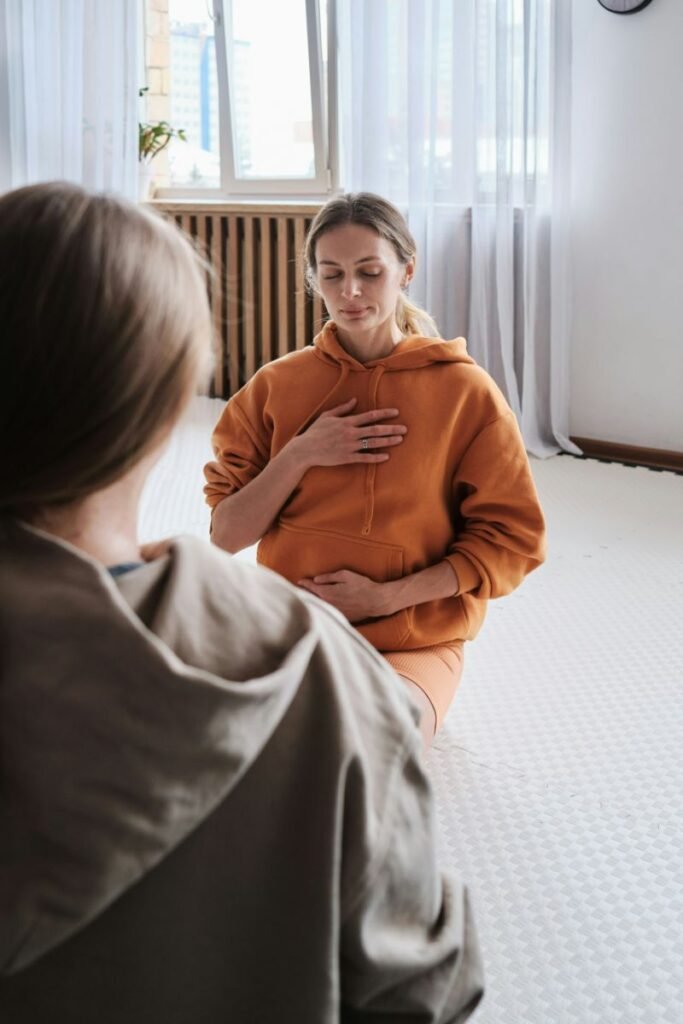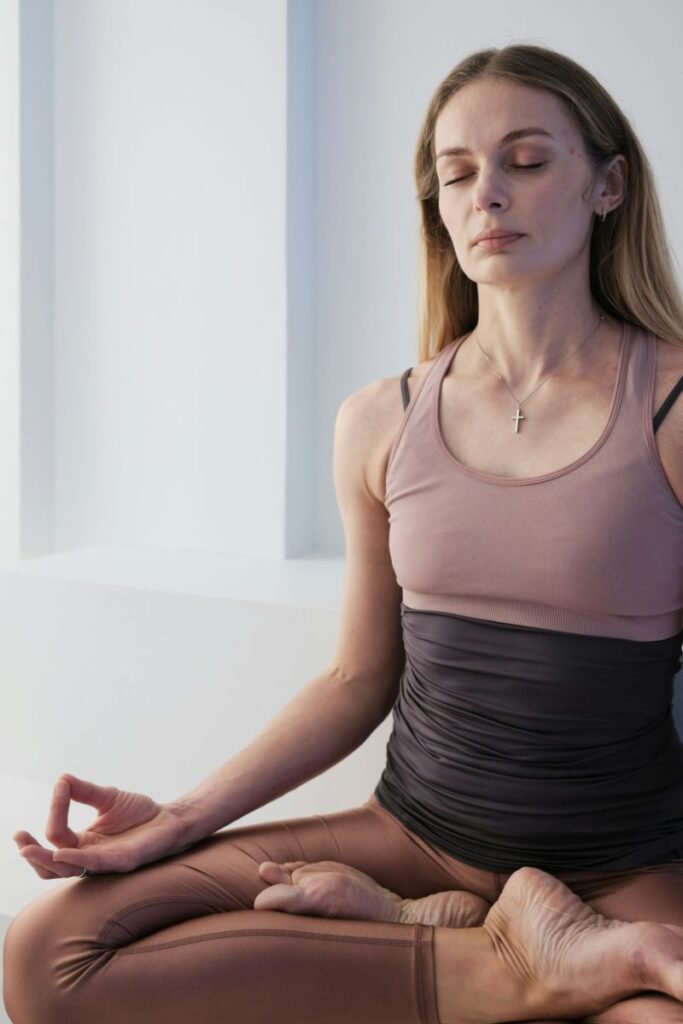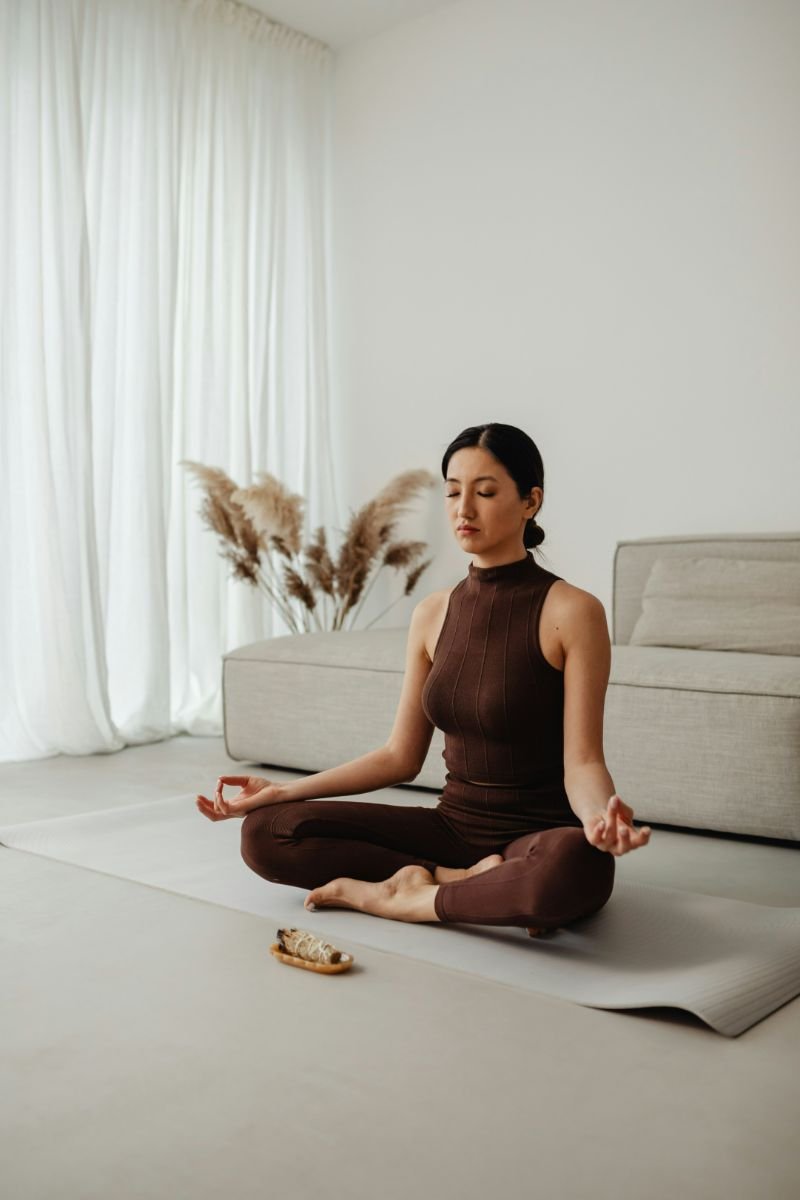How to Improve Confidence with Meditation: Simple Techniques to Boost Your Self-Esteem
Are you struggling with low self-confidence? Do you find yourself doubting your abilities and second-guessing your decisions? If so, you’re not alone. Many people struggle with confidence issues, but there are ways to improve your self-esteem and feel more secure in yourself. One effective method is through meditation.
Meditation is a powerful tool that can help you quiet your mind, reduce stress, and improve your overall well-being. But did you know that it can also help boost your confidence? By practicing meditation regularly, you can learn to cultivate a more positive self-image, reduce negative self-talk, and develop a greater sense of self-assurance. In this article, we’ll explore how to improve confidence with meditation and provide you with some tips and techniques to get started.
Whether you’re new to meditation or have been practicing for years, there are a variety of techniques you can use to increase your confidence. From visualization exercises to mindfulness practices, there are many ways to incorporate meditation into your daily routine and start feeling more self-assured. So if you’re ready to boost your confidence and start living your best life, keep reading to learn more about how meditation can help.
Understanding the Basics of Meditation

Defining Meditation
Meditation is a practice that involves training your mind to focus and achieve a state of calmness. It has been used for centuries to promote relaxation, reduce stress, and improve overall well-being. Meditation can take many forms, including mindfulness meditation, loving-kindness meditation, and body scan meditation.
During meditation, you sit comfortably with your eyes closed and focus your attention on your breath or a specific object. As thoughts arise, you acknowledge them and then let them go, returning your attention to your breath or object. With regular practice, meditation can help you become more aware of your thoughts and emotions, and better equipped to manage them.
The Connection Between Meditation and Confidence
Meditation can be a powerful tool for improving confidence. When you meditate, you learn to observe your thoughts and emotions without judgment. This can help you become more aware of negative self-talk and patterns of thinking that may be holding you back. With practice, you can learn to let go of these negative thoughts and replace them with more positive, empowering ones.
Meditation can also help you develop a greater sense of self-awareness and self-acceptance. As you become more comfortable with yourself and your thoughts, you may find that you feel more confident in your abilities and more at ease in social situations. Additionally, meditation can help you manage stress and anxiety, which can be major confidence killers.
Overall, meditation is a powerful tool for improving confidence and overall well-being. By learning to focus your mind and become more aware of your thoughts and emotions, you can develop a greater sense of self-awareness and self-acceptance, and become more confident in your abilities.
Practical Meditation Techniques

If you want to improve your confidence with meditation, there are several practical techniques that you can use. Here are three techniques that you can try:
Breathing Exercises
One of the most effective ways to improve your confidence is through breathing exercises. By focusing on your breath, you can calm your mind and reduce feelings of anxiety. One simple breathing exercise is to inhale deeply through your nose for four counts, hold your breath for four counts, and then exhale through your mouth for four counts. Repeat this exercise for several minutes until you feel more relaxed and centered.
Mindfulness Meditation
Another technique that can help improve your confidence is mindfulness meditation. This involves focusing your attention on the present moment and accepting your thoughts and feelings without judgment. To practice mindfulness meditation, find a quiet place to sit and close your eyes. Focus on your breath and notice any thoughts or feelings that arise. Instead of trying to push them away, simply acknowledge them and let them pass.
Guided Visualization
Guided visualization is another technique that can help you improve your confidence. This involves imagining yourself in a situation where you feel confident and successful. To practice guided visualization, find a quiet place to sit and close your eyes. Visualize yourself in a situation where you feel confident and successful. Imagine how it feels to be in that situation, and focus on those positive feelings. You can also use guided visualization exercises that are available online or through meditation apps.
By practicing these techniques regularly, you can improve your confidence and reduce feelings of anxiety and self-doubt. Remember to be patient with yourself and give yourself time to develop your meditation practice.
Incorporating Meditation into Daily Life
Meditation is a powerful tool that can help you cultivate inner confidence and resilience. However, it can be challenging to incorporate meditation into your daily routine. Here are some tips to help you get started:
Creating a Routine
One of the best ways to incorporate meditation into your daily life is to create a routine. Choose a time of day that works best for you, whether it’s first thing in the morning, during your lunch break, or before bed. Set aside a specific amount of time for your meditation practice, even if it’s just five minutes to start.
Meditation Spaces
Creating a dedicated meditation space can help you get into the right mindset for your practice. Find a quiet, comfortable space in your home where you can meditate without distractions. You can also add elements that help you relax and focus, such as candles, incense, or calming music.
Overcoming Challenges
Meditation can be challenging, especially when you’re first starting out. If you find yourself struggling to focus, try using a guided meditation app or video to help you stay on track. You can also experiment with different types of meditation, such as mindfulness or loving-kindness meditation, to find what works best for you.
Remember, meditation is a practice, and it takes time to develop the skills and techniques that will help you cultivate inner confidence and resilience. Be patient with yourself, and don’t get discouraged if you don’t see results right away. With time and practice, you’ll be able to reap the many benefits of a consistent meditation practice.
Measuring Progress and Maintaining Motivation

Improving confidence with meditation is a journey that requires patience, persistence, and consistency. It’s important to set realistic goals, track your progress, and stay inspired along the way. Here are some tips to help you measure your progress and maintain your motivation.
Setting Realistic Goals
One of the keys to success in meditation is setting realistic goals. It’s important to start small and gradually increase the intensity and duration of your practice. For example, if you’re new to meditation, you may want to start with just five minutes a day and gradually work your way up to 20 or 30 minutes.
When setting goals, it’s important to be specific and measurable. For example, instead of saying “I want to improve my confidence,” try setting a specific goal like “I want to feel more confident when giving presentations at work.” This will help you stay focused and motivated.
Tracking Improvements
Tracking your progress is an important part of improving confidence with meditation. It can be helpful to keep a journal or log of your meditation practice, noting the duration of each session, any insights or breakthroughs you experience, and how you feel before and after each session.
You can also track improvements in your confidence levels by paying attention to how you feel in different situations. For example, you may notice that you feel more confident and at ease during social situations or public speaking engagements after practicing meditation consistently for several weeks or months.
Staying Inspired
Staying inspired is essential to maintaining your motivation and momentum with meditation. One way to stay inspired is to connect with a community of meditators, either in person or online. This can provide a sense of accountability and support, as well as opportunities to learn from and share with others.
Another way to stay inspired is to try different types of meditation and mindfulness practices. There are many different styles of meditation, such as mindfulness, loving-kindness, and visualization, each with its own unique benefits and challenges. By exploring different practices, you can find what works best for you and keep your practice fresh and engaging.
In summary, measuring progress and maintaining motivation are key components of improving confidence with meditation. By setting realistic goals, tracking your progress, and staying inspired, you can cultivate a strong and sustainable meditation practice that leads to greater confidence and well-being.






